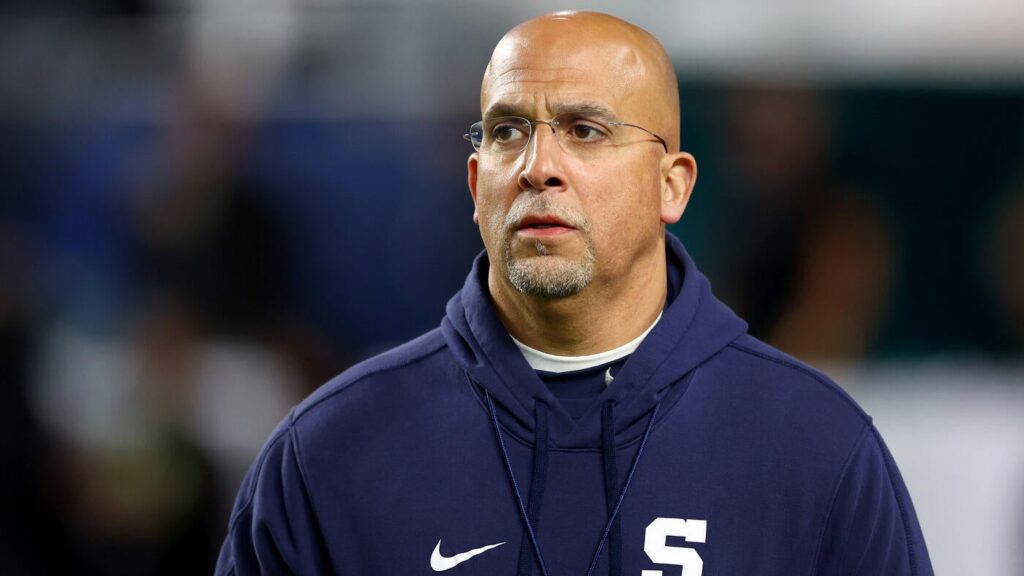
Just today: James Franklin questions CFP selection committee ‘bias,’ Penn State coach argues for BCS-style formula

Penn State head coach James Franklin has sparked fresh debate in the college football world after publicly questioning what he sees as a “bias” in the College Football Playoff (CFP) selection process. In a surprising and candid statement, Franklin suggested that the current committee-based system lacks transparency and consistency, and went so far as to advocate for a return to a more objective, BCS-style formula.
Franklin’s remarks came during a press conference following Penn State’s exclusion from the CFP conversation despite a strong record and performance throughout the season. The Nittany Lions, who ended with an impressive resume, were overlooked in favor of teams Franklin believes had less convincing credentials but benefited from subjective committee judgments.
“When you look at the criteria, and then compare it to how decisions are made, you can’t help but wonder if it’s really about performance—or about preference,” Franklin said. “There’s a lack of clarity in how these decisions are being made, and that’s a concern not just for us, but for the integrity of the sport.”
The College Football Playoff committee, composed of former coaches, athletic directors, and administrators, has long faced criticism for perceived favoritism toward certain programs or conferences. While the committee insists it follows a detailed set of guidelines—including strength of schedule, head-to-head matchups, and conference championships—critics like Franklin argue that personal opinions often outweigh data.
“Everyone in this sport works hard,” Franklin continued. “But we’re asking young men to give everything on the field, only to have their fate decided in a boardroom. That’s not the best message we can send.”
Franklin then referenced the BCS (Bowl Championship Series) system, which was used from 1998 to 2013 to determine college football’s top teams using a combination of human polls and computer rankings. While not without its own flaws, the BCS formula was data-driven and largely removed individual bias from the final selection.
“I’m not saying the BCS was perfect, but at least it was predictable and based on actual results,” Franklin said. “We need to rethink how we’re choosing these four teams. Maybe it’s time to bring back some version of the formula—something grounded in math and performance, not opinion.”
Unsurprisingly, Franklin’s comments drew swift reactions from across the college football landscape. Some coaches and analysts agreed with his stance, expressing frustration over the lack of transparency in the current system. Others defended the committee, noting that human judgment adds context that formulas can’t always capture.
Regardless of where one stands, Franklin’s bold statement has reignited an important conversation: how should college football determine its best teams? With playoff expansion on the horizon, discussions around fairness and selection criteria are more relevant than ever.






